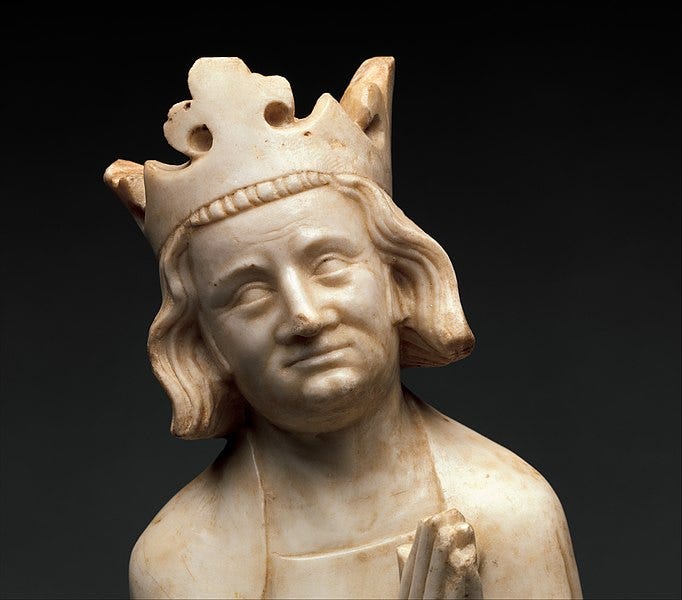"The Statesman" by Plato
Is a Just Monarchy Viable?
“In a certain sense it is clear that the art of the legislator belongs to that of a king; but the best thing is not that the laws should prevail, but rather the kingly man who possesses wisdom".1
The Statesman is a later Platonic dialogue and the sequel to The Sophist. The main character of this dialogue is once again the unnamed "Visitor" from Elea who now takes as his discussion partner the "young" Socrates, a boy named after the famous philosopher. (The older Socrates introduces the dialogue but is a silent observer during most of it.)
Through the method of "division and classification" introduced in The Sophist, the two interlocutors attempt to identify and distinguish the class of king/ruler/statesman from all other vocations that are concerned with the "collective rearing" of living things. Their aim is to discover where the expertise required to rule justly resides and how to apply it in political governance.
The Visitor leads Young Socrates through several rounds of taxonomic division, assigning caregivers such as herdsmen into increasingly differentiated classes, by which they hope to arrive at the type of caregiver that directs human affairs. Some of these divisions result in rather awkward and incomplete definitions, to the effect that the statesman ends up in their first attempt as the opposite class of someone who raises birds!
So they begin again, and this time the Visitor takes Young Socrates through a circuitous argument involving ancient myths about the divine origins and epochs of the universe—and even a lengthy discussion about the art of weaving! Somehow, they finally identify 7 forms of government, of which 6 are grouped into opposing constitutional pairs and the 7th stands out as their ideal statesman—the just and able monarch “who possesses wisdom”. Here are the remaining groups, in order of preference:
Rule of one (without expertise): monarchy (lawful) vs. tyranny (unlawful)
Rule of a few: aristocracy (lawful) vs. oligarchy (unlawful)
Rule of the many: democracy (lawful) vs. anarchy2 (unlawful)
Interestingly, the Visitor claims that democracies (which he calls “rule of the masses”) are the least effectual governments, for good or ill, because their distribution of power across many actors tends to mitigate its effects. I’ll leave it to the reader to decide if he’s correct. It does prompt us to ask ourselves, though, “Does this dialogue have any relevance for us today?”
I heard a lecturer recently claim that people nowadays no longer “believe” in monarchy. He didn't explain himself further, so I don’t know if he was referring to monarchy’s existential credibility, like belief in God or Santa Claus, or just commenting on its viability as a form of government in an age of widespread democracy. Perhaps he was only congratulating America's founding fathers for having thrown off the yoke of a tyrranical king. Whatever he meant, I found his remark somewhat shortsighted by ignoring the fact that a few dozen monarchies still remain in the world today, albeit many of them with limited constitutional power.
In the end, even Plato’s Visitor recognizes that his kingly ideal is far from the anticipated norm. Therefore, his final recommendation is to always seek to combine bold and temperate personalities (in both political and matrimonial pairings) so that they will complement each other’s strengths and offset the weaknesses. On a personal level, I think his advice can be read as good instructions for developing the complementary virtues of a noble nature suited to ruling our own constitutions wisely.
Plato, and C.J Rowe. “Statesman.” In Plato: Complete Works, p. 338. Indianapolis, IN: Hackett Publishing Co., 1997.
My term, not Plato’s. He distinguishes democracies as “ordered” and “disordered”.
* Image: Bird Recovery, Intl.




Amy- You’re absolutely correct in that there definitely remains a few absolute monarchies left in the world. And I do wonder if that lecturer’s remark is intended for specific regions? Either way, I appreciate this piece.
My opinion: different forms of government are necessary to deal with the needs of society to handle differing epochs. Thus, e.g., the initial rise of the Taliban, in its early days, was a good thing to restore law & order in many Afghan villages ravaged by anarchy and lawlessness. But soon, the Taliban had overstayed its welcome and grew into the monstrosity it was when America finally invaded to bring justice down upon Al-Qaeda and Mullah Omar.